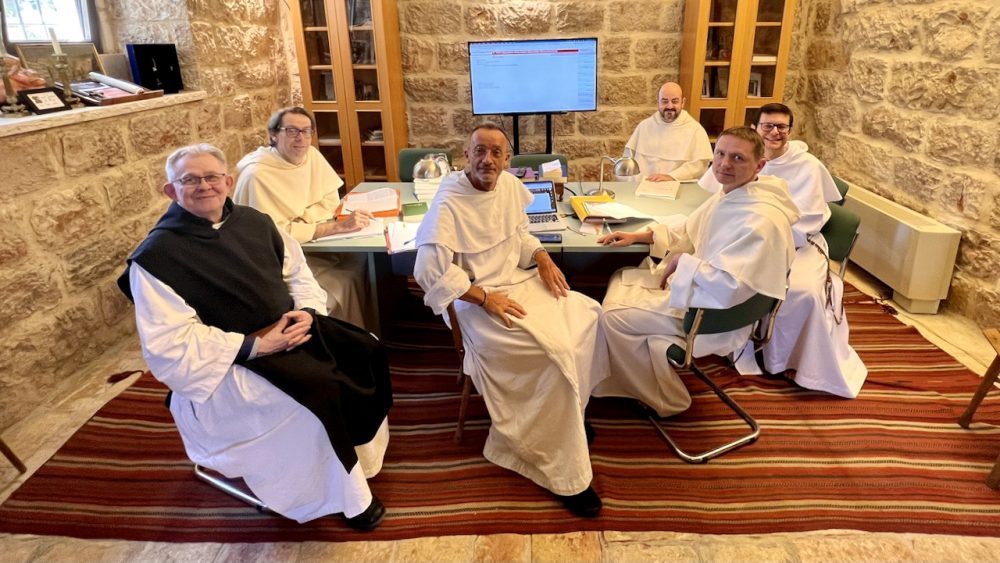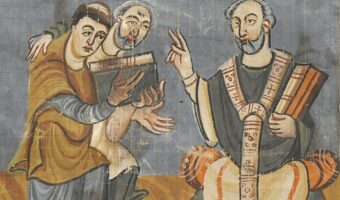The address bibletraditions.org was, for a long time, that of our collaborative platform, while we were also experimenting with digital interfaces allowing the public to access the results of our research. Over the years several different sites presented the work and news of The Bible in its Traditions, running the risk of uneven distribution.
In order to provide more stable readability to our project, we open today this unique portal-blog on bibletraditions.org, which centralizes all our proposals.
You are welcome to
- create, i.e. to work on the collaborative platform, to translate and annotate the Bible, in your fields of expertise. We are thus producing an analytical database connected to the very letter of the biblical text. Continuously growing, it already offers very rich annotation, in particular multimedia resources.
- read: i.e. to access our annotated Bible, via an interface that presents the results of our teams’ work, as they progress
- taste: i.e. to discover in Web Progressive Application, on your smartphone or tablet, a brand new (French) translation of the Bible is being finalized.
- to meditate on the Word, though printed books that digital interfaces will never completely replace. This portal presents them succinctly with links allowing you to acquire them.
The reading interface (“read”) and the mobile application (“taste”) are here proposed to you in preview, in beta-testing. In view of their future launch, please make use of them and send us your remarks, to help us improve them.
“The ‘Sagrada Familia’ of the École Biblique”
It is by recalling Gaudi’s masterpiece still in progress in Barcelona that Rev Dr Jean Jacques Pérennès, the current director of the French Biblical and Archaeological School in Jerusalem, likes to describe the work in progress.
We are in fact building a cathedral, as our friend, the academician Goncourt, so aptly put it:
“Gütenberg made the Bible into a book. With the B.E.S.T. [Bible in its traditions] project, it becomes a vision again. Who would have thought that, thanks to sophisticated technologies, its dematerialization would give it back its original vocation? It will exist as never before through its transmission, the text and its reception once again in osmosis. Watching them all working on their masterpiece, giving themselves thirty years to complete it while knowing that it will be, by definition, forever unfinished, one is invaded by a feeling of another age as if the builders of cathedrals had just resurrected in front of us, behind their computers, and that they were building something greater than themselves for the sole glory of God…”
« Gütenberg a fait de la Bible un livre. Avec le projet Best [Bible en ses traditions], elle redevient une vision. Qui eût cru que, grâce à des technologies sophistiquées, sa dématérialisation allait la rendre à sa vocation première ? Elle existera comme jamais par sa transmission, le texte et sa réception à nouveau en osmose. A les observer tous travailler à leur grande œuvre se donnant trente ans pour son achèvement tout en sachant qu’elle sera par définition à jamais inachevée, on se laisse traverser par un sentiment d’un autre âge, comme si les bâtisseurs de cathédrales venaient de ressusciter devant nous, derrière leurs ordinateurs, et qu’ils construisaient quelque chose de plus grand qu’eux pour la seule gloire de Dieu ».
Pierre Assouline, Vies de Job, roman (NRF, Paris : Gallimard, 2011) p. 195.
Thank you for your interest and support over the years,
The members of the Editorial Committee of The Bible in its Traditions



